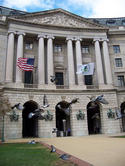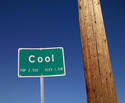But isn’t it great news for the environment that we are having fewer children?”
We should always stress the positive in life. Were it not for the dramatic slowdown in birthrates that began the late 1960s and 70s, the apocalyptic warnings of overpopulation then voiced Paul Ehrlich, the Club of Rome, and many others could well have come true in short order. We are lucky that they did not. But it is not clear the “the planet” is any better off as a consequence. read more »






















